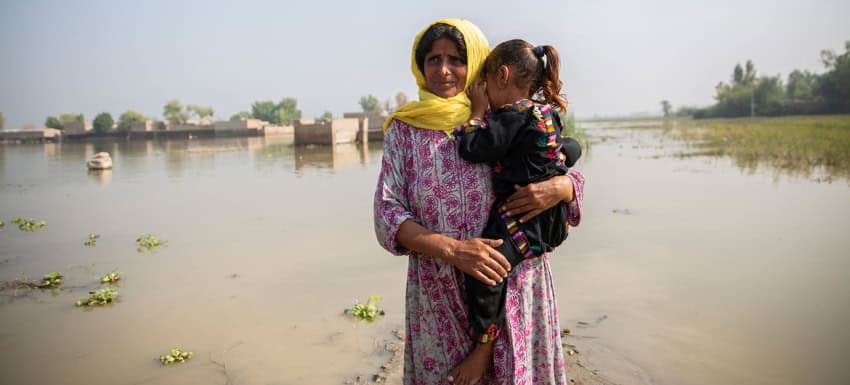ISLAMABAD – An estimated 200,000 people in Pakistan could be affected by the upcoming monsoon season, which is expected to bring heavier than usual rains, a top UN official warned on Thursday.
The United Nations, with assistance from local authorities, has prepared a contingency plan, allocating $40 million to respond to potential emergencies, stated Mohamed Yahya, the newly appointed Resident Coordinator and Humanitarian Coordinator in Pakistan.
Yahya informed journalists in Islamabad that Pakistani weather forecasters predict above-normal rainfall in the coming weeks. However, the rains are not expected to be as severe as those in 2022, when devastating floods killed 1,739 people, destroyed 2 million homes, and submerged up to one-third of the country.
Pakistan is one of the most vulnerable countries to climate change, partly due to its immense northern glaciers, which are melting as air temperatures rise. Warmer air holds more moisture, intensifying monsoon rains.
Until recently, public opinion and some government officials paid little attention to the negative impacts of climate change on daily life. Changing weather patterns in Pakistan have forced cities to strengthen their infrastructure and farmers to adapt their practices.
The 2022 floods caused over $30 billion in damage to Pakistan’s already cash-strapped economy. Analysts and government officials say man-made disasters, such as droughts, heatwaves, and heavy rains, have hindered Pakistan’s economic growth, damaging roads, bridges, power systems, and other infrastructure.
Despite contributing less than 1 percent to global carbon emissions, Pakistan bears the brunt of climate disasters. This year, Pakistan recorded its wettest April since 1961, with more than double the usual monthly rainfall.
Yahya said he is in contact with officials at Pakistan’s Ministry of Climate Change, who are preparing their own contingency plans for the monsoon season, which runs from July to October.
Earlier this week, Pakistani weather forecasters urged people to stay indoors as the third heatwave in a month began. A recent study by the United Nations Children’s Agency indicated that Pakistan could avert 175,000 deaths by 2030 by developing resilient energy systems to power its health facilities.
On Thursday, temperatures in various parts of Pakistan soared to as high as 48 degrees Celsius (118 degrees Fahrenheit), forcing many people to stay indoors. Authorities are advising people to stay hydrated and avoid unnecessary travel.













